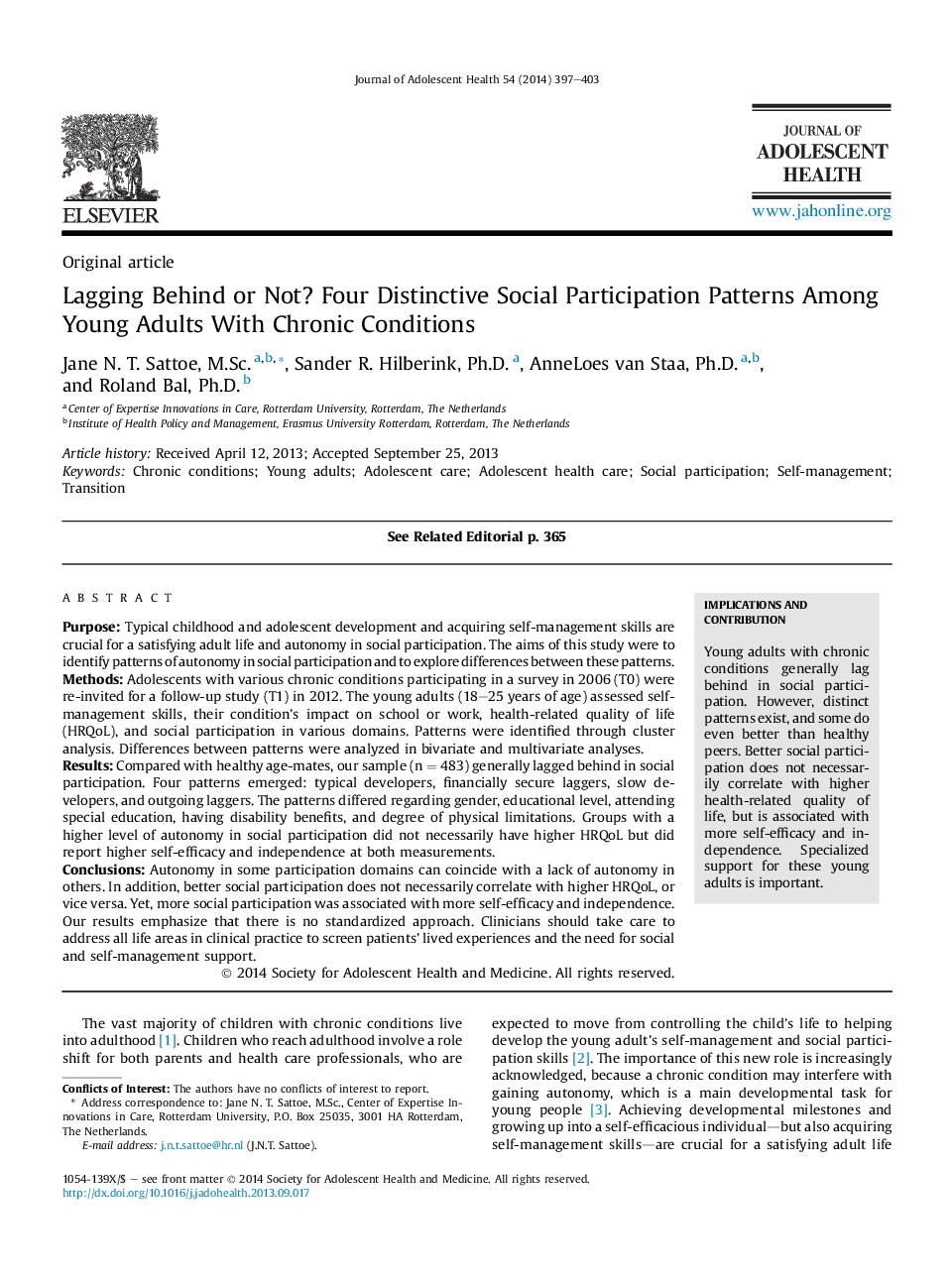| کد مقاله | کد نشریه | سال انتشار | مقاله انگلیسی | نسخه تمام متن |
|---|---|---|---|---|
| 1078828 | 950477 | 2014 | 7 صفحه PDF | دانلود رایگان |
PurposeTypical childhood and adolescent development and acquiring self-management skills are crucial for a satisfying adult life and autonomy in social participation. The aims of this study were to identify patterns of autonomy in social participation and to explore differences between these patterns.MethodsAdolescents with various chronic conditions participating in a survey in 2006 (T0) were re-invited for a follow-up study (T1) in 2012. The young adults (18–25 years of age) assessed self-management skills, their condition's impact on school or work, health-related quality of life (HRQoL), and social participation in various domains. Patterns were identified through cluster analysis. Differences between patterns were analyzed in bivariate and multivariate analyses.ResultsCompared with healthy age-mates, our sample (n = 483) generally lagged behind in social participation. Four patterns emerged: typical developers, financially secure laggers, slow developers, and outgoing laggers. The patterns differed regarding gender, educational level, attending special education, having disability benefits, and degree of physical limitations. Groups with a higher level of autonomy in social participation did not necessarily have higher HRQoL but did report higher self-efficacy and independence at both measurements.ConclusionsAutonomy in some participation domains can coincide with a lack of autonomy in others. In addition, better social participation does not necessarily correlate with higher HRQoL, or vice versa. Yet, more social participation was associated with more self-efficacy and independence. Our results emphasize that there is no standardized approach. Clinicians should take care to address all life areas in clinical practice to screen patients' lived experiences and the need for social and self-management support.
Journal: Journal of Adolescent Health - Volume 54, Issue 4, April 2014, Pages 397–403
